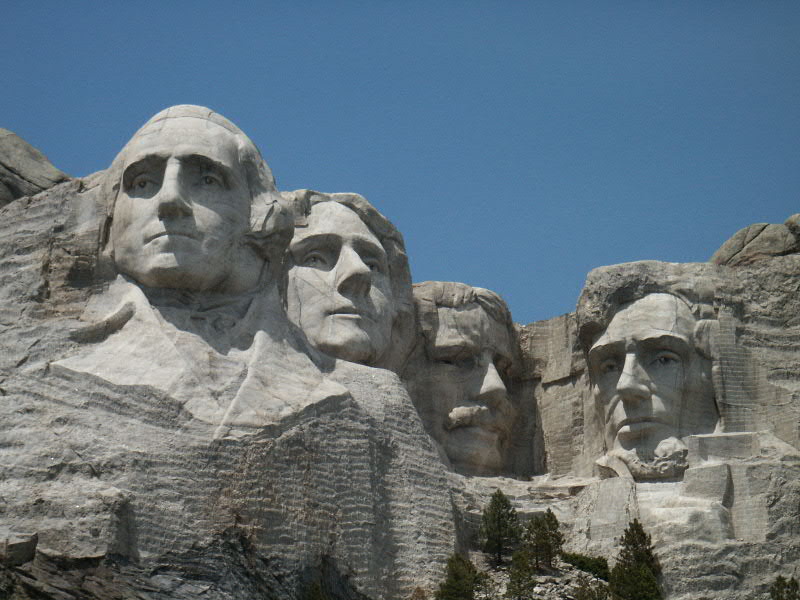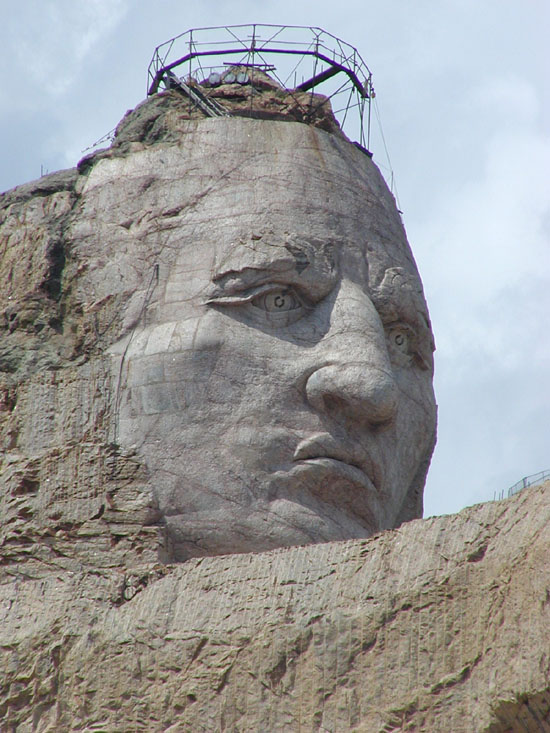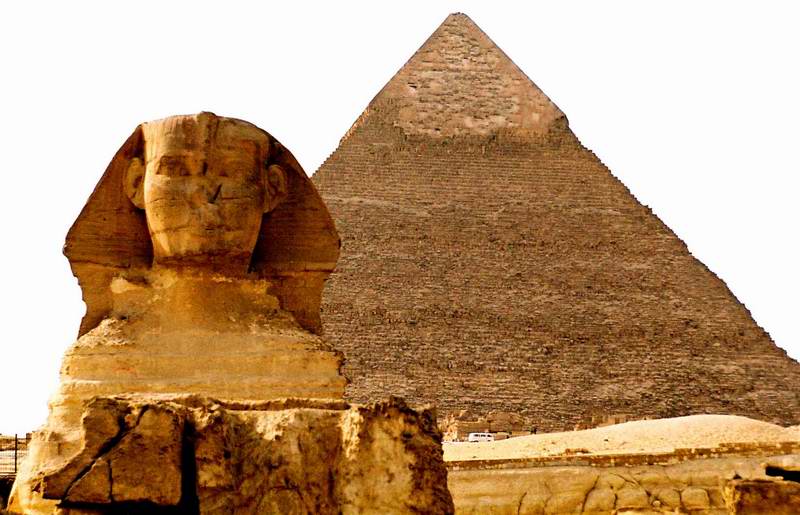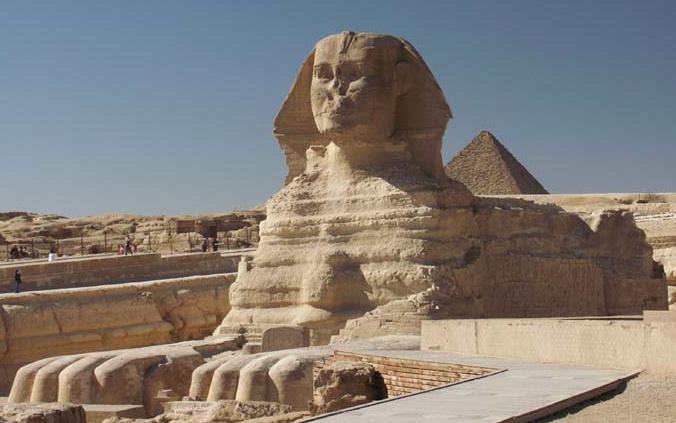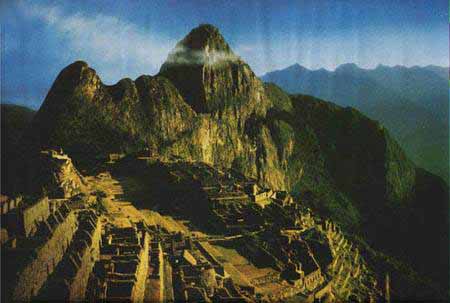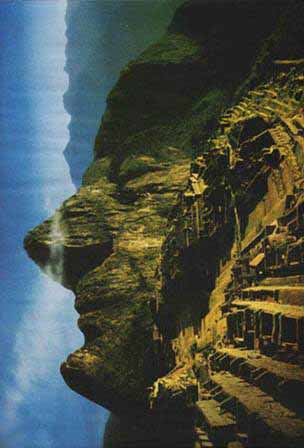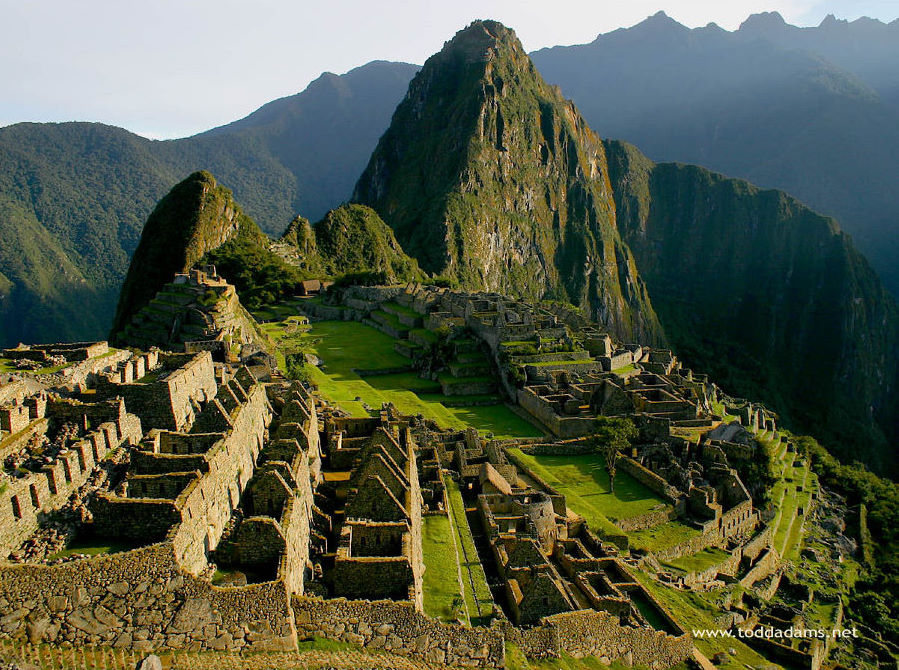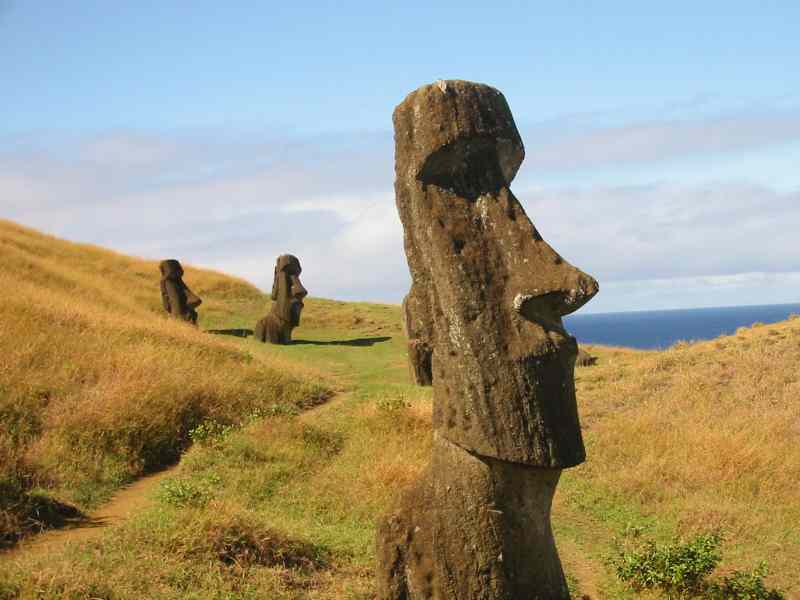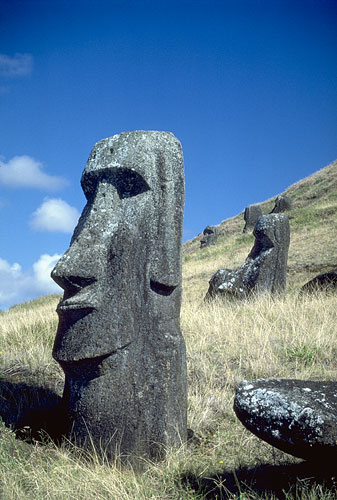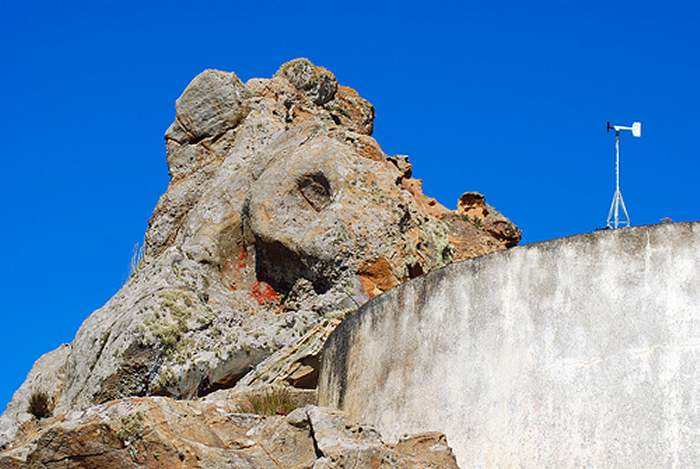|
The Enigmas on Earth The Guardians |
||||
|
Mt Rushmore South Dakota
The best place to begin a study of Faces in Rock, whether creates by Nature, by Man or by Aliens is to have a look at the best recent work of mankind on Earth |
||||
|
South Dakota
This work was never completed, but has a place in our study. Both Crazy Horse Mountain and Mt Rushmore prove that Mankind still has a fascination to carve huge monuments in rock just as our ancient ancestors did. |
||||
|
Giza, Egypt .
Going back in time a few thousand
years, we find the
Sphinx in Ancient Egypt, a magnificent example of
stone carving on an immense
scale along with the Pyramids of Giza. The history
books talk of many other
gigantic statues, but as we have no image of them we
will not include them
at this time...
|
||||
|
Machu Picchu, Peru .
"This one's from the early days of Photo Shop. It was dishonestly published as evidence of supernatural influences, to promote credulity and gullibility. It was claimed, not only that there was a face, but that space aliens must have carved it there. As a work of art, this picture's cool. It's a shame somebody felt compelled to lie about it. It's also a grave insult to the Inca inhabitants of Machu Picchu, who were awesome terraformers who built millions of square meters of farming terraces on those slopes. They actually *could* have made it a massive face if that's what they wanted. (I seem to recall they decided to cover the Plains of Nazca with hummingbirds and monkeys instead.) The remedy to the bullshit has been to post the original image before its admittedly lovely doctoring into a face side by side with the original. Debunking usually takes quite a bit more effort than the hoax itself. As you've
probably never seen
the unretouched original photo, it just goes to
show you: a lie is halfway
around the world before the truth has got its
boots on."
Talz - Posted at Mighty
Optical
Illusions
|
||||
|
Winding Valley in Libya Montes MOC Image M02-03051 . There have been many years of discussion about the famous :Face on Mars" in the Cydonia Region on Mars. We have our study and report on that face here... The new one shown above has remarkable detail. More on this face is found here. |
||||
|
Easter Island . The Moai statues of Rapa Nui One of the world's most famous yet least visited archaeological sites, Easter Island is a small, hilly, now treeless island of volcanic origin. Located in the Pacific Ocean at 27 degrees south of the equator and some 2200 miles (3600 kilometers) off the coast of Chile, it is considered to be the world's most remote inhabited island. Sixty three square miles in size and with three extinct volcanoes (the tallest rising to 1674 feet), the island is, technically speaking, a single massive volcano rising over ten thousand feet from the Pacific Ocean floor. The oldest known traditional name of the island is Te Pito o Te Henua, meaning ‘The Center (or Navel) of the World.’ In the 1860’s Tahitian sailors gave the island the name Rapa Nui, meaning ‘Great Rapa,’ due to its resemblance to another island in Polynesia called Rapa Iti, meaning ‘Little Rapa’. The island received its most well known current name, Easter Island, from the Dutch sea captain Jacob Roggeveen who became the first European to visit Easter Sunday, April 5, 1722. - Source
|
||||
|
Newton Basin in Sirenum Terra #2 MOC E03-02550 . This amazing anomaly was found in a recent Malin Space Systems image from Mars. It sits in the bottom of a crater. Is it an uncanny rock formation or an avante garde Moai Statue? |
||||
|
1947 . The planned Face on Earth, envisaged in 1947 Long before anyone saw a face on Mars looking towards us, there was a plan to build a face on Earth. After the Second World War an American artist called Isamu Noguchi worked on several huge schemes, including the gardens for the UNESCO headquarters in Paris. He was haunted by the idea that nuclear war would destroy humanity, and planned a vast sculpture that would inform extraterrestrials that a civilized life form had once existed on Earth. The vast set of earthworks – sadly
never realized
– would have depicted a giant human face centered on
a nose that was
a pyramid a mile long. Noguchi called it Sculpture
To Be Seen From Mars....
|
||||
|
. Isn't it funny that when you're shooting something, you get home and see alot more than you did when you shot it!! I don't think I even noticed the 'face' when I took this. I'm not even sure what I was wanting to do here. Maybe it was the red in the pic? The one-eyed monster must have eaten a humanoid! LOL!!! Thanks Zozman & Flipowitz... |
||||
|
Antarctica . This unusual specimen was glacier carved in Antarctica and photographed while on expedition to Antarctica by Douglas R. Schmitt, Professor and Canada Research Chair in Geophysics at the University of Alberta |
||||
| FAIR USE NOTICE: This page contains copyrighted material the use of which has not been specifically authorized by the copyright owner. Pegasus Research Consortium distributes this material without profit to those who have expressed a prior interest in receiving the included information for research and educational purposes. We believe this constitutes a fair use of any such copyrighted material as provided for in 17 U.S.C § 107. If you wish to use copyrighted material from this site for purposes of your own that go beyond fair use, you must obtain permission from the copyright owner. | ||||
|
|
